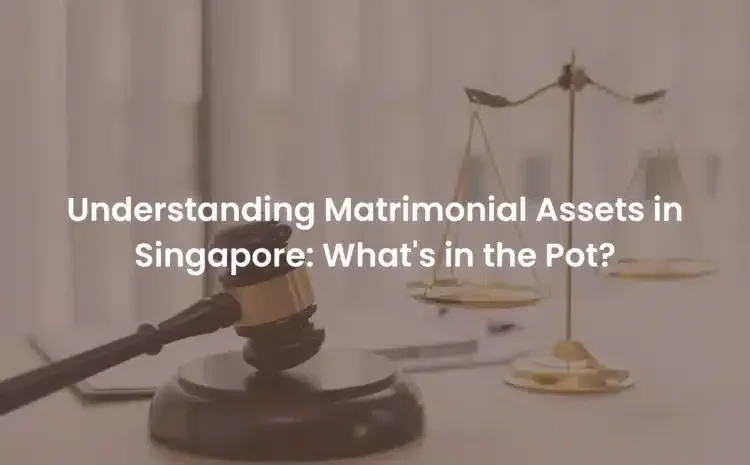Understanding Matrimonial Assets in Singapore: What’s in the Pot?
Introduction
In the context of divorce and the division of assets, understanding what constitutes matrimonial assets is crucial, especially in a jurisdiction like Singapore. The Lion City has a well-established legal framework that governs the division of matrimonial assets, and knowing what falls under this category is fundamental to a fair and just outcome. In this article, we will explore what exactly constitutes matrimonial assets in Singapore.
Defining Matrimonial Assets
Matrimonial assets in Singapore are assets that are considered for division when a couple divorces. These assets are typically acquired during the course of the marriage, and they are up for distribution between the spouses when the marriage dissolves. The legal foundation for this concept is primarily provided by the Women’s Charter.
Here’s a closer look at what falls under the umbrella of matrimonial assets:
Properties and Real Estate: Any property acquired during the marriage is considered a matrimonial asset, whether it’s the family home, an investment property, or even a piece of land. This includes properties held solely by one spouse or jointly.
Savings and Investments: Bank accounts, stocks, bonds, mutual funds, and other investment vehicles, whether in joint or individual names, are part of the matrimonial asset pool.
Business Interests: If either spouse owns a business, whether solely or jointly, the business’s value is considered a matrimonial asset. The court may order the sale of the business or a share of its value to be given to the other spouse.
Pension and Provident Funds: Retirement funds, including CPF (Central Provident Fund), are matrimonial assets if they were contributed to during the marriage.
Assets Acquired Before Marriage: Assets brought into the marriage or received as inheritances or gifts are generally not considered matrimonial assets. However, they can become part of the division if they were substantially improved or used for the family’s benefit.
Personal Belongings: While less common, personal belongings like jewelry, antiques, and art may be included if they hold significant value.
Future Assets: Importantly, assets acquired after the formal separation but before the final judgment of divorce are also subject to division if they are derived from matrimonial efforts or financial resources.
The Court’s Role
In Singapore, the court’s primary goal when dividing matrimonial assets is to ensure a fair and equitable distribution. The court employs a structured process that takes into account various factors, such as the financial and non-financial contributions of each spouse during the marriage, their needs, and the welfare of any children involved.
It’s important to note that the default position under Singapore law is an equal division of matrimonial assets. However, the court may deviate from this principle if it finds substantial reasons to do so, such as unequal contributions to the family or wastage of assets.
Conclusion
Understanding what constitutes matrimonial assets in Singapore is essential when navigating the complex process of divorce and asset division. While the default principle is an equal sharing of these assets, the court takes a case-by-case approach, considering the unique circumstances and contributions of each party. Parties seeking a divorce in Singapore should consult with legal experts to ensure a fair and just division of their matrimonial assets.

